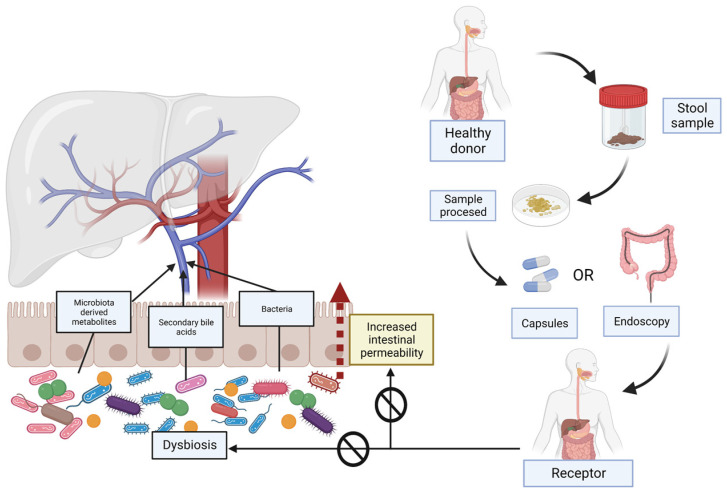Figure 2.
Non-alcoholic-fatty-liver-disease (NAFLD)-related dysbiosis and increased intestinal permeability and the utility of faecal microbiota transplantation (FMT). The increase in intestinal permeability enables bacteria and their metabolites to reach the liver through the portal system. In FMT, a stool sample is taken from a healthy donor. After processing, it will be administered to the receptor subject with NAFLD. The FMT can be performed in different ways, either orally or by endoscopy or enemas. FMT is intended to reverse existing dysbiosis and restore the intestinal barrier, and consequently improve the severity of the disease.

